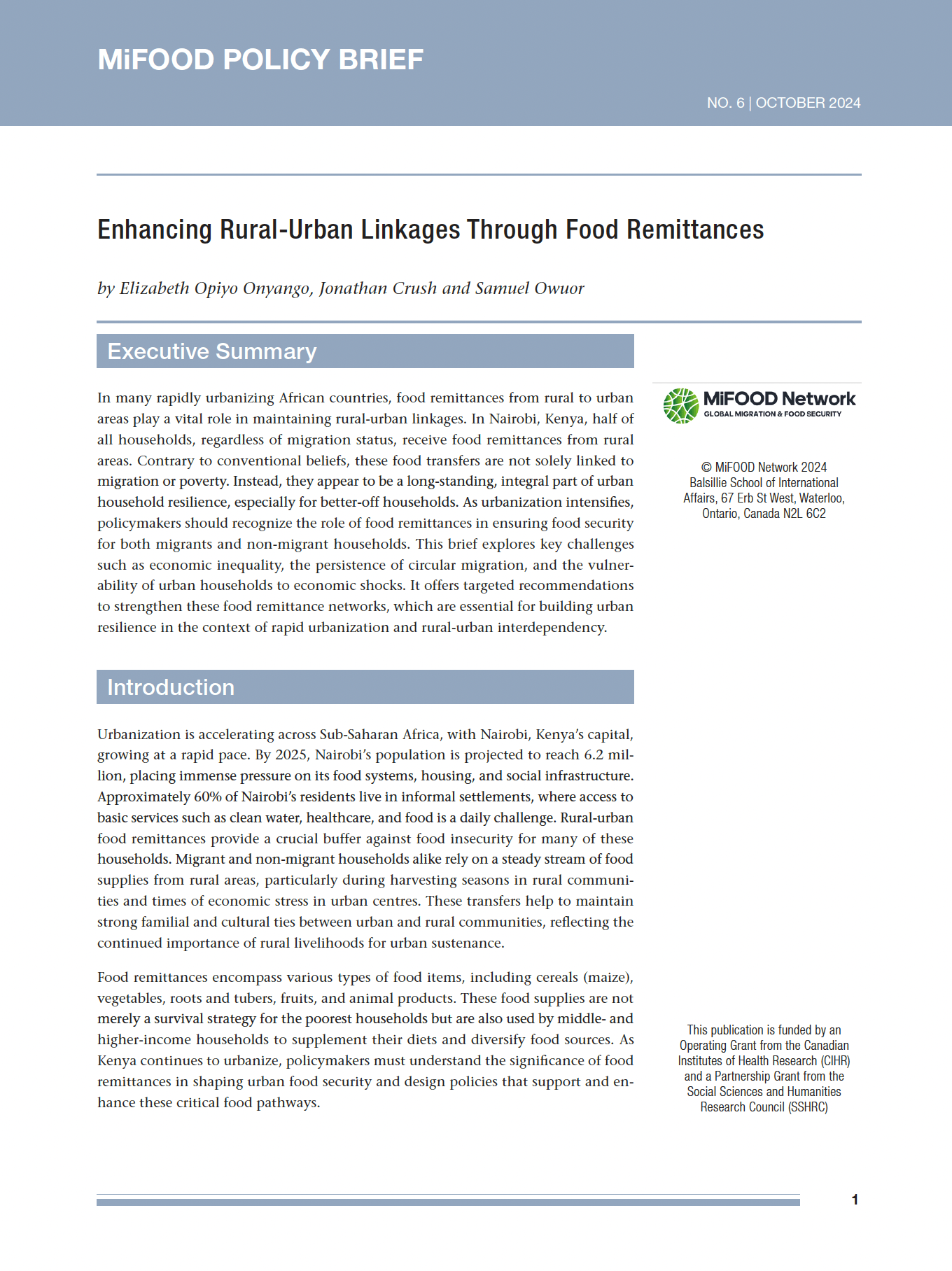In many rapidly urbanizing African countries, food remittances from rural to urban areas play a vital role in maintaining rural-urban linkages. In Nairobi, Kenya, half of all households, regardless of migration status, receive food remittances from rural areas. Contrary to conventional beliefs, these food transfers are not solely linked to migration or poverty. Instead, they appear to be a long-standing, integral part of urban household resilience, especially for better-off households. As urbanization intensifies, policymakers should recognize the role of food remittances in ensuring food security for both migrants and non-migrant households. This brief explores key challenges such as economic inequality, the persistence of circular migration, and the vulnerability of urban households to economic shocks. It offers targeted recommendations to strengthen these food remittance networks, which are essential for building urban resilience in the context of rapid urbanization and rural-urban interdependency.

